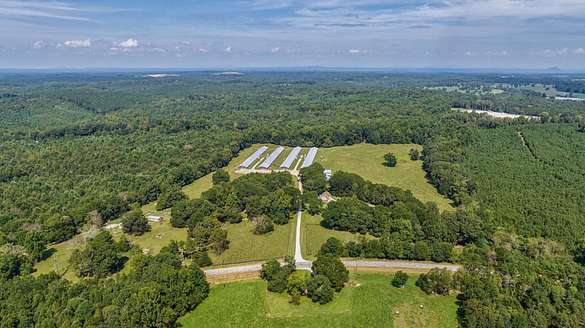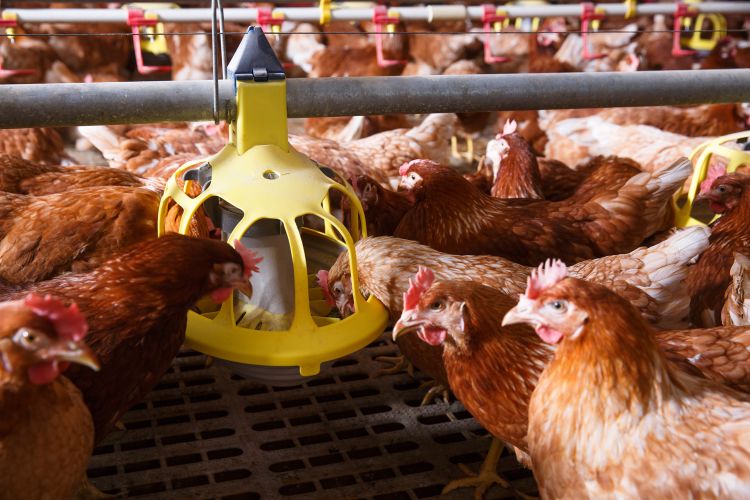
Table of Contents
Introduction
Nestled in Northeast Georgia, Lavonia may appear as a tranquil town, but it plays a significant role in the state’s thriving poultry industry. As part of Georgia’s extensive poultry corridor, Lavonia contributes to an industry that not only feeds the nation but also shapes the local economy, environment, and community dynamics.
Poultry Farming in Georgia: A Statewide Giant

Georgia stands as the leading poultry-producing state in the U.S., with the industry generating over $28 billion annually and employing more than 88,000 individuals statewide. Approximately 75% of Georgia’s counties are involved in poultry and egg production, underscoring the industry’s expansive reach.
Local Economic Impact
In and around Lavonia, poultry farming serves as a cornerstone of the local economy. The presence of major companies like Tyson Foods and Fieldale Farms, along with numerous family-owned farms, provides employment opportunities in farming, processing, transportation, and maintenance. This economic activity stimulates local businesses and contributes to the town’s financial health.
Life on a Poultry Farm
Many Lavonia residents engage in contract farming, raising broiler chickens for large corporations. These operations often utilize advanced technologies, such as climate-controlled housing, to ensure optimal growth conditions. Farmers balance traditional practices with modern innovations, navigating financial pressures and industry demands to sustain their livelihoods.
Environmental and Health Concerns
Absolutely! Let’s dive deeper into the Environmental and Health Concerns associated with poultry farming in Lavonia and similar rural communities in Georgia:
Environmental and Health Concerns: A Deeper Look

Poultry farming, while vital to Georgia’s economy, brings with it significant environmental and public health considerations—particularly in smaller towns like Lavonia where farms are often close to residential areas, schools, and waterways.
1. Waste Management Challenges
- Chicken litter, a combination of manure, feathers, and bedding material, is produced in massive quantities on poultry farms.
- While often used as fertilizer, improper storage or over-application on fields can lead to nutrient runoff, especially nitrogen and phosphorus, which can contaminate nearby streams, rivers, and even drinking water sources.
- Franklin County (where Lavonia is located) is part of the Savannah River Basin, a watershed vulnerable to agricultural runoff.
According to a University of Georgia report, poultry farming in Georgia generates more than 2 million tons of litter annually.
2. Air Quality and Odor Emissions
- Ammonia, released from decomposing poultry waste, is a common irritant that can affect respiratory health—especially for people living near large farms.
- Dust particles and volatile organic compounds (VOCs) from feed and waste can contribute to asthma and other lung issues.
- In confined poultry houses, poor ventilation can lead to occupational hazards for farmworkers as well.
3. Water Pollution and Ecosystem Disruption
- When poultry farms are not well-regulated, waste can enter waterways and trigger eutrophication, a process where nutrient overload causes algae blooms that deplete oxygen, killing aquatic life.
- In rural Lavonia, well water contamination is also a concern. Private wells are not regulated like municipal systems, making testing and monitoring essential.
4. Antibiotics and Drug Resistance
- The use of sub-therapeutic antibiotics to promote growth or prevent disease in chickens has been linked to the rise of antibiotic-resistant bacteria, which can spread to humans through meat, soil, and water.
- In areas with dense poultry production, environmental transmission of these resistant strains becomes a serious public health concern.
5. Zoning and Land Use Conflicts
- As the industry expands, new poultry houses are often built closer to homes, churches, and schools, creating tension between farmers and nearby residents.
- Complaints about odor, noise, and traffic from feed trucks have prompted local governments in parts of Georgia to review and tighten zoning regulations—something Franklin County may also face as operations grow.
Local Responses and Sustainable Solutions

Despite these challenges, there are active efforts to promote more sustainable and community-conscious poultry farming:
- Vegetative buffer zones and composting systems are being implemented by some forward-thinking farmers to reduce runoff and odor.
- Programs like the Georgia Poultry Environmental Management Initiative are educating farmers on best management practices (BMPs).
- Local schools and 4-H clubs are raising awareness about the intersection of agriculture and ecology, promoting a culture of stewardship among youth.
The Role of Policy and Community Engagement
- Stronger local ordinances around litter disposal, zoning, and emissions can help balance economic growth with community health.
- Greater transparency from poultry companies (who often contract local growers) is needed to ensure environmental accountability.
- Public involvement, including town halls and cooperative extension outreach, can give residents a voice in how agricultural practices evolve.
Read Also: Exploring the Hidden Natural Wonders of Victoria Bryant State Park Near Lavonia, Georgia
Education, Workforce, and Youth Involvement
Educational institutions near Lavonia, such as the University of Georgia, offer poultry science programs that benefit local students. Additionally, agricultural education initiatives and 4-H programs prepare youth for careers in agribusiness, fostering a new generation of informed and skilled professionals in the poultry industry.
The Future of Poultry in Lavonia
Innovations in automated feeding systems, organic poultry production, and waste recycling are shaping the future of poultry farming in Lavonia. By embracing sustainable practices and technological advancements, the town positions itself as a leader in responsible poultry production. There is also potential to leverage this identity for agribusiness tourism and educational programs, further enhancing Lavonia’s economic and cultural landscape.


